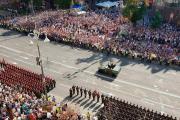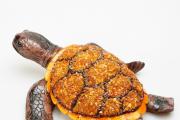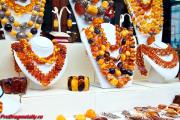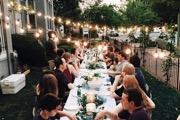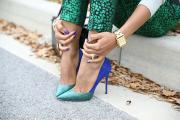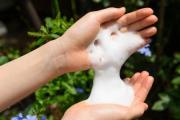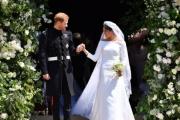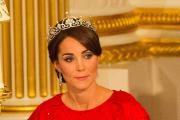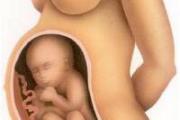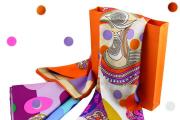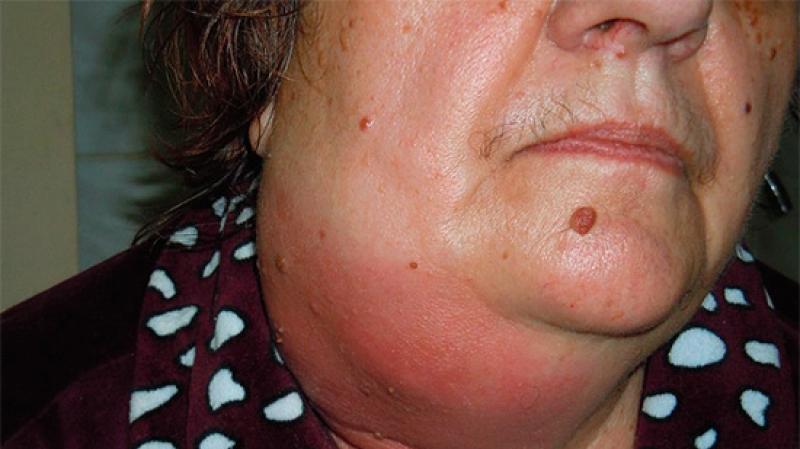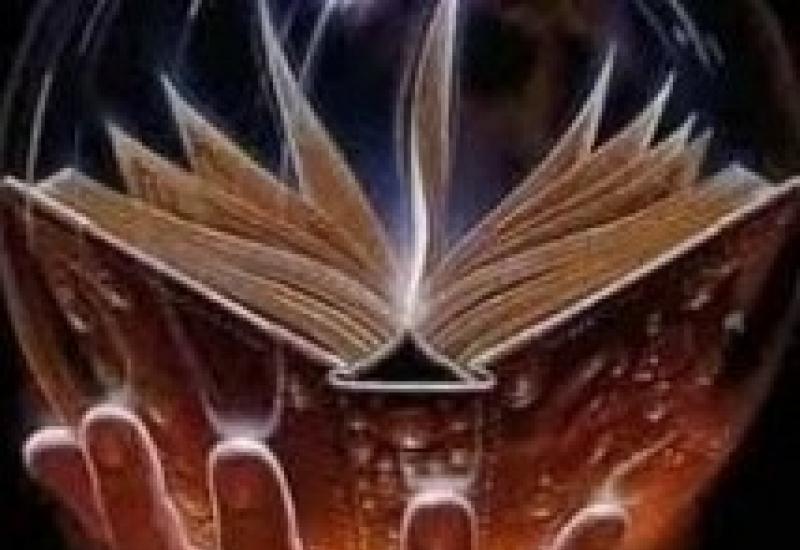Easy exercises for articles in English. Rules for using articles in English
About its rules and exceptions. It's time to move on to a new, more complex level and start studying the use of articles in English language. In general, this topic is difficult for Russian-speakers, since we do not understand why it is necessary to use articles in English, when it seemed that everything was clear. I hope that after reading this article, you will see what their task is.
Article classification
In Russian, there is no such part of speech as the article. Because in our native language we can change the constructions in places to give shades or stress on a certain phrase, but the meaning of the sentence will remain the same. In English, as we know, the order of units is strictly fixed, and articles are placed before some words in strictly defined cases. What are these cases we will learn today.
To get started, you need to understand the following:
A/an- from one (one)
The- from this / that (this, this, this, etc.)
Remembering this, you will understand why " a/an“Used only in the singular.
In English, the concept of the article is associated with the category of certainty. The basic rule of use in a simplified form can be reduced to the following: if we are talking about an object that is known to the speaker, then before the word indicating this object they put “the” - a definite article, and indefinite “a / an” - if it is about an unknown object until the moment of speaking.
- We have bought the dog that we saw yesterday. - We bought the dog that you saw yesterday (It is a question of a specific, specific dog - the one that you saw yesterday).
- We have bought a dog. - We bought a dog (you declare news, that is, for the first time you report a dog).
About whether or not to put “a / an” or “the”, and remember the rules, these 4 questions will help you and simple circuit, which clearly explains each rule: 
- What is the number of the word?
- Does this word belong to the category of countable?
- Has it been discussed before? (defined/indefinite)
- Is it something generalized?
As you can see, according to the rule in English " a/an" is used only with the "unknown" exponent, if it is countable and in the singular. A " the"- with a "known" countable word in any number. But you also noticed that when it comes to a specific, generalized subject, then they are not used at all, this is the so-called "zero article". Let's take a closer look at these cases.
Zero article rule
There are cases when instead of articles the pronoun “some” is used or nothing is put at all. If a word in Russian can be put one of the words in meaning - some, several, some, a certain amount, then in English the pronouns are added to the corresponding noun " some/any».
And when in our language it is impossible to add a single word to the corresponding noun, then nothing is put in the English sentence either: I bought some oranges yesterday - Yesterday I bought oranges (some, a few).
The rule of using the zero article Let's take a closer look at the rule, or rather the cases when this part of speech is not used at all in an English sentence:
- When summarizing: Apple are my favorite vegetable
- When there is no defining noun: I like Kate
- Plural of countable nouns: My uncle and my father are doctors
- Possessive case of proper nouns: Cindy's coat
- If there are adjectives before the word honest, dear, old and etc: little Sammy
- When noun. plays the role of definition: piano lessons
- Names of lakes, cities, countries, streets, states, continents, bays, islands: I've been neither to Lake Michigan nor to Lake Ontario. Exceptions: the Ukraine, the Russian Federation, the Via Manzoni…
- With other proper names (parks, bridges, airports, educational institutions): Paddington Station, Hyde Park, Columbia University. Exceptions: the Arbat, the Gorki Park
- Abstract concepts: I need information
- Before concepts denoting a title, honorary, military or scientific rank, rank, serving as generally accepted standards of treatment: Miss White, Doctor (Dr) Byron, Lord Brow n. Always capitalized
- Surnames and names: My name is Bond, James Bond
- Names of related relationships, as well as family members: Sister Polly, aunt Dafna, Don't tell Cousin. Also capitalized
- In some combinations of preposition and noun: to / in / into / from time; to / at / from university; by bicycle, train etc.: You can get there in time if you go by plane.
According to centuries-old traditions, they do not use articles with the words " NATO" And " Parliament" in the UK, often omitted before " Congress" in North America.
Articles in English are divided into certain And uncertain. The indefinite article was historically formed from the numeral one . It follows from this that it can only be used with countable nouns in the singular (Fig. 1).
This article has two forms: a(for words beginning with a consonant) and an(for words beginning with a vowel).
Example:
s now board
u mbrella
o range tent

Cases of using the indefinite article
1. Indefinite article a/an is used when we are talking about a subject for the first time and our interlocutor does not know anything about it.
Example:
I've got snowboard and I like to ride it. - I have a snowboard and I love to ride it.
2. In order to classify an object or object (that is, to attribute it to a certain class), the indefinite article is also used.
Example:
My brother is doctor. - My brother is a doctor (not a teacher, not a pilot, not an engineer, but a doctor).
John sat down on chair. John sat on a chair (not on an armchair, not on a sofa, but on a chair, one of many).
John sat down on chair nearest to the door. John sat down on the chair closest to the door. (certain chair).
3. If an object or person is considered as one of many, from a number of other similar objects (which is most often indicated by the definition), the indefinite article is used. Notice the descriptive attribute.
Example:
Look at her! She is beautifulgirl! - Look at her! She is a beautiful girl!
My friend drive redcar. - My friend drives a red car.
He has longnose. - He has a long nose.
4. The indefinite article is used when we want to indicate the frequency of an action, with words denoting time. In such sentences, The Present Simple Tense is most often used.
Example:
I visit my doctor once year. - I go to the doctor once a year.
My brother has English lessons two times week. - My brother has English twice a week.
In such situations, the indefinite article expresses the meaning of " one ».
5. The indefinite article is also used with such words and expressions as:
Great deal (of)
Example:
There is little milk on the table. - There is some milk on the table.
6. The indefinite article is used with uncountable nouns when a certain amount or portion is meant.
Example:
Let's have walk. - Lets go for a walk.
Can I have coffee, please? - Can I have a coffee, please? (meaning cup)
I had swim before breakfast. - I had a little swim before breakfast.
TheDefinitearticle
Definite article the formed from a demonstrative pronoun this . It can be used with both countable and uncountable nouns in the singular and plural. Difficulties sometimes cause the reading of this article. Need to remember simple rules. If after the article the word begins with a consonant sound, then the article is read as [ðə]. If after it there is a word that begins with a vowel sound, then the article is read as [ðɪ] (Fig. 2).
Example:
[ðə] t able
[ðɪ] e lephant

Rice. 2. Rules for reading the indefinite article ()
There are many uses of the definite article. Let's highlight the main ones.
1. The definite article is used in cases where the object or subject is already known or has been mentioned before.
Example:
I've got a dog. dog is black and white. - I have a dog. The dog is black and white.
2. The definite article is also always used when talking about unique nouns, one of a kind.
Example:
Earth is round. - The earth is round.
Nouns in English are divided into countable And uncountable(Fig. 3).

Rice. 3. Countable and uncountable nouns ()
TO countablenoun include items/objects that can be counted. Such nouns can be used both in the singular and in the plural, used with both the definite and the indefinite article. Countable nouns can be either subject, and collective.
Subject nouns:
a pupil - five pupils
a table - many tables
an engineer - engineers
Collective nouns:
a family - families
Article exercises.
Exercise 1. Insert the article where necessary:
1. This is ... clock. 2. This is … Kiev. 3. … Kiev is … big city. 4. Mary is … girl. 5. She is … my sister. 6. This is … room. 7. Is … newspaper in … bag? 8. She is in … room. 9. Is …teacher in …classroom? 10. Is … your room large? 11. Is ... pen in ... bag? 12. Are you … students? 13. My friend has … children. 14. … sportsmen are always in good shape. 15. … children we saw in … street are schoolboys. 16. She lives in … 1st street.
Exercise 2. Read the following expressions and translate into Russian:
A man’s bag, a girl’s doll, the women’s right, the actress’s voice, James’ room, fox’s tricks, boy’s games, students’ songs, Engels’ works, Marx’ letters
Exercise 3. Translate into English:
1. I know your teacher's brother. 2. This is my sister's watch. 3. Father's books in his room. 4. I often pass by our coach's house. 5. I often see my coach's friends. 6. Open the window. 7. Go to the window. 8. Bring some chalk, please. 9. Read this. 10. Write a letter, please. 11. Translate this text, please. 12. Bring me the ball.
Exercise 4. Insert the article where necessary.
1.This is ... book. It is my ... book. 2. Is this your ...pencil? - No, it isn't my ... pencil, it is ray sister's ... pencil. 3. I have ... sister. My ... sister is ... engineer. My sister "s ... husband is ... doctor. 4. I have no ... handbag. 5. Is this ... watch? - No, it isn" t ... watch, it "s .. 6. This ... pen is good, and that ... pen is bad. 7. I can see ... pencil on your ... table, but I can see no ... paper. 9. They have ... dog and two ... cats 10. I have ... spoon in my ... plate, but I have no ... soup in it.
Exercise 5. Insert the article where necessary.
1. This is ... tree. ... tree is green. 2. I can see three ... boys. ...boys are playing. 3. I have ... bicycle. ... bicycle is black. My ... friend has no ... bicycle. 4. Our ... room is large. 5. We wrote ... dictation yesterday. ... dictation was long. 6. She has two ... daughters and one ... son. Her ... son is ... pupil. 7. My ... brother "s ... friend has no ... dog. 8. This ... pencil is broken. Give me that ... pencil, please. 9. She has ... ball. . 10. I got ... letter from my ... friend yesterday ... letter was interesting.
Exercise 6. Insert the article where necessary.
1. This is ... pen. ... pen is red. 2. These are pencils. ... pencils are black. 3. This is ... soup. ... soup is tasty. 4. In the morning I eat ... sandwich and drink ... tea. 5. She gave me ... coffee and ... cake. ...coffee was hot. ... cake was tasty. 6. Do you like ... ice-cream? 7. I see ... book in your ... hand. Is ... book interesting? 8. She bought... meat, ... butter and ... potatoes yesterday. She also bought ... cake. ... cake was very ... tasty. We ate ... cake with ... tea. 9. This is my ... table. On ... table I have ... book, two ... pencils, ... pen and ... paper. 10. This is ... bag. ... bag is brown. It is my sister "s ... bag. And this is my ... bag. It is ... yellow.
Exercise7 . Insert the article where necessary.
1. I have two ... sisters. My ... sisters are ... students. 2. We are at ... home. 3. My ... brother is not at ... home, he is at ... school. 4. My ... mother is at ... work. She is ... doctor. 5. I am not ... doctor. 6. I have no "... sister. 7. He is not ... pilot. 8. I have thirty-two ... teeth. 9. He has ... child. 10. She has two ... children. Her children are at ... school. 11. Is your father at ... home?—No, he is at ... work. 12. Where is your ... brother?—He is at ... home.
Exercise 8. Pastearticle, Wherenecessary.
1. We have ... large ... family. 2. My granny often tells us ... long ... interesting .. stories. 3. My ... father is ... engineer. He works at ... factory. ... factory is large. 4. My ... mother is ... doctor. She works at ... large ... hospital. She is at ... work now. 5. My ... aunt is ... teacher. She works at ... school. ... school is good. My ... aunt is not at ... school now. She is at ... home. She is drinking ... tea and eating ... jam. ... jam is sweet. I am at ... home, too. I am drinking ... tea and eating ... sandwich. ... sandwich is tasty. 6. My sister is at ... school. She is ...pupil. 7. My cousin has... big... black... cat. My cousin"s ... cat has two ... kittens. ... milk, too. cat likes ... milk. ... kittens like
Exercise 9. Insert the article where necessary.
1. I am ... engineer. 2. My ... son is ... pupil. 3. He is ... good ... pupil. 4. This is ... house. 5. This is my ...pencil. 6. You have some ... pencils, but I have no ... pencil. Give me pencil, please. 7. I like your...beautiful...flower. Give me ... flower, please. 8. My ... mother is at ... home. She is reading ... interesting ... book. 9. My ... father is not at ... home. He is at ... work. He is ... doctor. He is... good... doctor. He works at ... hospital. ... hospital is large.
Exercise 10. Insert the article where necessary.
1. What "s ... weather like today? - ... weather is fine. 2. ... sun is yellow. 3. ... sky is gray today. 4. ... earth is ... planet 5. We had ... English lesson yesterday ... teacher asked me many ... questions. ... questions were difficult.
4. Where is your ... brother? — He is at ... home. He is in his ... room. He is sitting at ... table. He is doing his ... homework. ... homework is difficult. 5. Our ... cat is sitting on ... sofa. 6. It is very dark in ... room. Turn on ... light, please. 7. Nick went into ... bathroom, turned on ... water and washed his ... hands.
Exercise 11. Insert the article where necessary.
At... beginning of ... 19th century ... little boy was born in ... family of John Dickens, ... clerk at ... office in ... Portsmouth, and was named Charles. He had ... sister who was older than himself, arid there were several other children in ... family. When Charles was seven, he was sent to ... school. He wasn't... strong child. He did not like to play ... cricket or .. football and spent all his free time reading. In 1821 ... family went to ... London and little Charles left behind him ... happiest years of his childhood. His father was in ... money difficulties, and ... family became poorer and poorer. ... boy had to give up his studios. Mr. Dickens was put into ... debtors" prison. Little Charles learned to know all ., horrors and cruelty of ... large capitalist city. He had to go to work at... blacking factory. He worked there from ... morning till ... night. When his father came out of prison, Charles was sent to ... school for some time. Soon he got work as ... clerk. Then he learned ... stenography and became ... reporter in Parliament. In 1836 at... age of 24 Charles Dick-1 en? published his first book. It was ... collection of ... stories. ... title of ... book was "Sketches by Boz ." There were followed by "Pickwick Papers" and "Oliver Twist" and many other famous novels. Charles Dickens is one of ... greatest writers of ... 19th. century. His novels are now translated into most languages of .. .world.
Answers
Answers - Exercise 1.
1.This is a clock. 2. This is Kiev. 3. Kiev is a big city. 4. Mary is a girl. 5. She is my sister. 6. This is a room. 7. Is a newspaper in the bag? 8. She is in the room. 9. Is a teacher in the classroom? 10. Is your room large? 11. Is a pen in the bag? 12. Are you students? 13. My friend has the children. 14. The sportsmen are always in good shape. 15. The children we saw in the street are schoolboys. 16. She lives in the 1st Street.
Answers - Exercise 2.
A man's bag, a girl's doll, the women's right, the actress's voice, James' room, fox's tricks, boy's games, students' songs, Engels' works, Marx' letters.
Answers - Exercise 3.
1. I know your teacher's brother.
I know your teacher's brother.
2. This is my sister's watch. This is my sister's watch.
3. Father's books in his room. Father's books are in his room.
4. I often pass by our coach's house. I often pass (or go by) our trainer's house.
5. I often see my coach's friends. I often see my trainer's friends.
6. Open the window. Open the window.
7. Go to the window. Come to the window.
8. Bring some chalk, please. Bring the chalk, please.
9. Read this. Read it.
10. Write a letter, please. Write a letter, please.
11. Translate this text, please. Translate the text, please.
12. Bring me the ball. Bring me the ball.
Answers - Exercise 4.
1.This is a book. It is my book. 2. Is this your pencil? - No, it isn't my pencil, it is my sister's pencil. 3. I have a sister. My sister is an engineer. My sister "s husband is a doctor. 4. I have no handbag. 5. Is this a watch? - No, it isn" t a watch, it "s a pen. 6. This pen is good, and that pen is bad. 7. I can see a pencil on your table, but I can see no paper. 8. Give me a chair, please. 9. They have a dog and two cats. 10. I have a spoon in my plate, but I have no soup in it.
Answers - Exercise 5.
1. This is a tree. The tree is green. 2. I can see three boys. Boys are playing. 3. I have a bicycle. The bicycle is black. My friend has no bicycle. 4. Our room is large. 5. We wrote a dictation yesterday. The dictation was long. 6. She has two daughters and one son. Her son is a pupil. 7. My brother "s friend has no dog. 8. This pencil is broken. Give me that pencil, please. 9. She has a ball. The ball is big. 10. I got a letter from my friend yesterday. The letter was interesting.
Answers - Exercise 6.
1. This is a pen. The pen is red. 2. These are pencils. The pencils are black. 3. This is soup. The soup is tasty. 4. In the morning I eat a sandwich and drink tea. 5. She gave me coffee and a cake. The coffee was hot. The cake was tasty. 6. Do you like ice cream? 7. I see a book in your hand. Is the book interesting? 8. Do you need a camera? 9. He never eats meat, he always eats vegetables, cereals, seeds, fruit, and nuts. He is a vegetarian. 10. This is a pineapple. The pineapple is delicious. 11. Elaine, apples are good for you! 12. My cousin is upset. He "s got a sore throat. 13. This is cottage cheese. The cottage cheese is fresh. 14. She bought meat, butter and potatoes yesterday. She also bought a cake. The cake was very tasty. We ate the cake with tea 15. This is my table. On the table I have a book, two pencils, a pen and paper. 16. This is a bag. The bag is brown. It is my sister's bag. And this is my bag. It is yellow.
Answers - Exercise 7.
1.I have two sisters. My sisters are students. 2. We are at home. 3. My brother is not at home, he is at school. 4. My mother is at work. She is a doctor. 5. I am not a doctor. 6. I have no sister. 7. He is not a pilot. 8. I have thirty-two teeth. 9. He has a child. 10. She has two children. Her children are at school. 11. Is your father at home? No, he is at work. 12. Where is your brother? — He is at home.
Answers - Exercise 8.
1. We have a large family. 2. My granny often tells us long interesting stories. 3. My father is an engineer. He works at a factory. The factory is large. 4. My mother is a doctor. She works at a large hospital. She is at work now. 5. My aunt is a teacher. She works at school. The school is good. My aunt is not at school now. She is at home. She is drinking tea and eating jam. The jam is sweet. I am at home, too. I am drinking tea and eating a sandwich. The sandwich is tasty. 6. My sister is at school. She is a pupil. 7. My cousin has a big black cat. My cousin "s cat has two kittens. The cat likes milk. The kittens like milk, too. 8. I am an engineer. 9. My son is a pupil, 10. He is a good pupil. 11. This is a house 12. This is my pencil. 13. You have some pencils, but I have no pencil. Give me a pencil, please.
Answers - Exercise 9.
1. I am an engineer. 2. My son is a pupil. 3. He is a good pupil. 4. This is a house. 5. This is my pencil. 6. You have some pencils, but I have no pencil. Give me a pencil, please. 7. I like your beautiful flower. Give me the flower, please. 8. My mother is at home. She is reading an interesting book. 9. My father is not at home. He is at work. He is a doctor. He is the good doctor. He works at a hospital. The hospital is large.
Answers - Exercise 10.
1. What "s the weather like today? - The weather is fine. 2. The sun is yellow. 3. The sky is gray today. 4. The Earth is a planet. 5. We had an English lesson yesterday. The teacher asked me many questions. The questions were difficult. 6. Where is your brother? - He is at home. He is in his room. He is sitting at the table. He is doing his homework. The homework is difficult. 7. Our cat is sitting on the sofa. 8. It is very dark in the room. Turn on the light, please. 9. Nick went into the bathroom, turned on the water and washed his hands.
Answers - Exercise 11.
At the beginning of the 19th century a little boy was born in the family of John Dickens, a clerk at an office in Portsmouth, and was named Charles. He had a sister who was older than himself, and there were several other children in the family. When Charles was seven, he was sent to school. He was not a strong child. He did not like to play cricket or football and spent all his free time reading. In 1821 the family went to London, and little Charles left behind him the happiest years of his childhood. His father was in money difficulties, and the family became poorer and poorer. The boy had to give up his studies. Mr. Dickens was put into a debtors" prison. Little Charles learned to know all the horrors and cruelty of a large capitalist city. He had to go to work at a blacking factory. He worked there from morning till night. When his father came out of prison, Charles was sent to school for some time. Soon he got work as a clerk. Then he learned stenography and became a reporter in Parliament. In 1836 at the age of 24 Charles Dickens published his first book. It was a collection of stories . The title of the book was "Sketches by Boz." These were followed by "Pickwick Papers" and "Oliver Twist" and many other famous novels. Charles Dickers is one of the greatest writers of the 19th century. His novels are now translated into most languages of the world.
Why.
The article is not used if the noun is preceded by a possessive or demonstrative pronoun, another noun in the possessive case, a cardinal number, or the negation "by" (not "not").
Ex. 1. Insert the article where necessary.
This is ... book. It is my ... book. 2. Is this your ...pencil? - No, it isn't my ... pencil, it is ray sister's ... pencil. 3. I have ... sister. My ... sister is ... engineer. My sister "s ... husband is ... doctor. 4. I have no ... handbag. 5. Is this ... watch? - No, it isn" t ... watch, it "s .. 6. This ... pen is good, and that ... pen is bad. 7. I can see ... pencil on your ... table, but I can see no ... paper. 9. They have ... dog and two ... cats 10. I have ... spoon in my ... plate, but I have no ... soup in it.
E.g. This is a book. The book is interesting.
Ex. 2. Insert the article where necessary.
1. This is ... tree. ... tree is green. 2. I can see three ... boys. ...boys are playing. 3. I have ... bicycle. ... bicycle is black. My ... friend has no ... bicycle. 4. Our ... room is large. 5. We wrote ... dictation yesterday. ... dictation was long. 6. She has two ... daughters and one ... son. Her ... son is ... pupil. 7. My ... brother "s ... friend has no ... dog. 8. This ... pencil is broken. Give me that ... pencil, please. 9. She has ... ball. . 10. I got ... letter from my ... friend yesterday ... letter was interesting.
Indefinite article a (an) can only be used with singular countable nouns. The indefinite article is omitted before uncountable or plural nouns. Definite article the It is used with both countable and uncountable nouns, both singular and plural.
E.g. This is a book. The book is interesting.
countable in the singular
This is S meat. The meat is fresh.
uncountable
These are S books. The books are good.
plural
Ex. 3. Insert the article where necessary.
1. This is ... pen. ... pen is red. 2. These are pencils. ... pencils are black. 3. This is ... soup. ... soup is tasty. 4. In the morning I eat ... sandwich and drink ... tea. 5. She gave me ... coffee and ... cake. ...coffee was hot. ... cake was tasty. 6. Do you like ... ice-cream? 7. I see ... book in your ... hand. Is ... book interesting? 8. She bought... meat, ... butter and ... potatoes yesterday. She also bought ... cake. ... cake was very ... tasty. We ate ... cake with ... tea. 9. This is my ... table. On ... table I have ... book, two ... pencils, ... pen and ... paper. 10. This is ... bag. ... bag is brown. It is my sister "s ... bag. And this is my ... bag. It is ... yellow.
Remember the following phrases in which the article is not used:
at S school at S home at S work
Ex. 4. Insert the article where necessary.
1. I have two ... sisters. My ... sisters are ... students. 2. We are at ... home. 3. My ... brother is not at ... home, he is at ... school. 4. My ... mother is at ... work. She is ... doctor. 5. I am not ... doctor. 6. I have no "... sister. 7. He is not ... pilot. 8. I have thirty-two ... teeth. 9. He has ... child. 10. She has two ... children. Her children are at ... school. 11. Is your father at ... home? - No, he is at ... work. 12. Where is your ... brother? - He is at ... home.
If an adjective is used before a noun, it is placed between the article and the noun.
E.g. This is a book. This is a good book.
upr 5. Insert the article where necessary.
1. We have ... large ... family. 2. My granny often tells us ... long ... interesting .. stories. 3. My ... father is ... engineer. He works at ... factory. ... factory is large. 4. My ... mother is ... doctor. She works at ... large ... hospital. She is at ... work now. 5. My ... aunt is ... teacher. She works at ... school. ... school is good. My ... aunt is not at ... school now. She is at ... home. She is drinking ... tea and eating ... jam. ... jam is sweet. I am at ... home, too. I am drinking ... tea and eating ... sandwich. ... sandwich is tasty. 6. My sister is at ... school. She is ...pupil. 7. My cousin has... big... black... cat. My cousin"s ... cat has two ... kittens. ... milk, too. cat likes ... milk. ... kittens like
Ex. 6. Insert the article where necessary.
1. I am ... engineer. 2. My ... son is ... pupil. 3. He is ... good ... pupil. 4. This is ... house. 5. This is my ...pencil. 6. You have some ... pencils, but I have no ... pencil. Give me pencil, please. 7. I like your...beautiful...flower. Give me ... flower, please. 8. My ... mother is at ... home. She is reading ... interesting ... book. 9. My ... father is not at ... home. He is at ... work. He is ... doctor. He is... good... doctor. He works at ... hospital. ... hospital is large.
Often, even when mentioning an object for the first time, we nevertheless use the definite article in front of it:
a) if the item mentioned is the only one in the world
E.g. Thesun is shining brightly.
c) if this subject is specific to the situation
E.g. Put the book on the table.
Ex. 7. Insert the article where necessary.
1. What's ... weather like today? - ... weather is fine. 2. ... sun is yellow. 3. ... sky is gray today. 4. ... earth is ... planet 5. We had ... English lesson yesterday ... teacher asked me many ... questions. ... questions were difficult.
4. Where is your ... brother? - He is at ... home. He is in his ... room. He is sitting at ... table. He is doing his ... homework. ... homework is difficult. 5. Our ... cat is sitting on ... sofa. 6. It is very dark in ... room. Turn on ... light, please. 7. Nick went into ... bathroom, turned on ... water and washed his ... hands.
Ex. 8. Insert the article where necessary.
1. This is ... good ... book. Take ... book from ... table. Put this ... book into ... bookcase. 2. ...weather is fine today. ... sky is blue. ... sun shining is brightly in ... blue ... sky. 3. This is ... boy. ... boy is at... school. He is ...pupil. This ... boy is my ... brother "s ... friend. He has ... cat, but he has no ... dog. He likes his ... cat. He gives ... cat .. 4. Yesterday I received ... letter from my ... friend. ... letter was interesting. 5. We live in... big house. I like ... house very much. Are you ... worker? - No, I am ... student.
In addition, there is a huge number of so-called "frozen phrases," in which the article is used or absent traditionally. These phrases have to be learned by heart.
Remember the following structures.
There is a ... Where is the ... ?
Remember also the following sentences:
The(book) is onthe(table). Ho: The (book) is ona little(table) 1
Ex. 9. Insert the article where necessary.
1. Where is ... cat? -.. cat is on ... sofa. 2. Where is ... book? - .. book is on ... shelf. 3. Where are... flowers? - ...flowers are in ...beautiful vase. 4. Where is.. vase? - ... vase is on ... little table near ... window. 5. Open ... window, please. ...weather is fine today. I can see ... sun in ... sky. I can see...nice little bird. ... bird is sitting in ... big tree. ... tree is green. 6. There is ... little white cloud in ... sky. 7. We have ... large room. There is ... big sofa in ... room and ... little lamp on ... wall over ... sofa. I like to sit on ... sofa and read ... good book.
1 The noun in brackets can be anything. The adjective can also be anything. Instead of the preposition "on" there can be any other preposition or a phrase that replaces it, for example, "in front of".
Remember the following frozen phrase:
in S front
Ex. 10. Insert the article where necessary.
1. Where is ... soup? - ... soup is in ... big saucepan on ... gas-cooker. 2. Where are ... cutlets? - ... cutlets are in ... refrigerator on ... little plate. 3. There is no ... bread on ... table. Where is...bread? 4. There is ... little brown coffee-table in our ... room in ... front of ... sofa. 5. Where is ... table in your ... room? 6. There is ... thick carpet on ... floor in my mother "s ... room. 7. Is your brother at ... home? - No, he is at ... work. He works at. .. big factory. He is ... engineer. 8. My sister has many ... books. ... books are in ... big bookcase. 9. ... weather is fine today. Let "s go and play in ... yard. There are many ... children in ... yard. They are playing with ... ball.
Remember the following constructions that require the indefinite article:
I have a ... This is a ... I am a... Not has a... That is a... Not is a... I see a... It is a... She is A...
There is a...
Ex. 11. Insert the article where necessary.
1, We have ... big dog. ... dog is very clever. 2. My friend has ... very good computer. 3. This ... boy is big. He is ... student. 4. There is ... very big piano in ... hall. 5. This is ... tree and that is not ... tree. It "s ... bush. 6. I am ... boy. I am ... pupil. I learn at ... school. 7. My sister is at ... work. She is ... secretary. 8. This is ... very difficult question. I don't know ... answer to it. 9. Do you see ... little girl with ... big ball in her ... hands? She is ... pupil of our ... school. 10. There was ... beautiful flower in this ... vase yesterday. Where is ... flower now?
in the middle in the corner to the right to the left
Ex. 12. Insert the article where necessary.
There is ... thick red ... carpet in my ... room. ... carpet is on ... floor in ... front of ... sofa. 2. Where is ... table in your brother "s ... room? - His ... table is near ... window. 3. I can see ... fine ... vase on ... shelf. 4. We have no ... piano in our ... living-room. 5. My ... uncle is ... married. He has ... beautiful wife. They have ... son, but they have no ... daughter. 6. I can see ... nice ... coffee-table in ... middle of ... room to ... right of ... door. It is ... black and ... red. I like...coffee-table. 7. Our ... TV set is on ... little ... table in ... corner of ... room. 8. There is... beautiful picture in my father's ... study, ... picture is on ... wall to ... left of ... window.
My aunt's flat is in ... new house. There is ... living-room, ... bedroom, ... study, ... bathroom and ... kitchen in ... flat. ... bedroom is ... large room with ... two windows. ... room is light as ... windows are large. There are ... white curtains on ... windows. There are ... two beds with . .. large pillows on them. There are ... small tables near ... beds. There are ... lamps on them. To ... left of ... door there is ... dressing-table with .. There is ... low chair at ... dressing-table. There are ... several pictures on ... pale green walls. There is ... thick carpet on ... floor. ... carpet is dark green.
If after the construction there is (there are) there is an uncountable noun or a noun in the plural, instead of the omitted indefinite article, the word "some."
Ex. 14 Insert the article where necessary.
There is ... sofa in ... corner of ... room. 2. There are ... cushions on ... sofa, 3. There are ... books on ... shelf. Give me ... book, please. 4. Look into ... refrigerator. What can you see on ... shelves? - There is ... butter in ... butter-dish. There is ... sausage, but there is no ... cheese. There are ... eggs and ... apples. There is ... orange, ... lemon, and ... jam in ... little vase. 5. There is ... juice in this ... cup. May I drink ... juice? 6. There are ... girls in ... yard, but I can see no ... boys. Where are...boys? - Oh, all... boys are playing football at... stadium.
I have ... color TV set. ... TV set is on ... little table in ... corner of ... room. 2. There is ... book, ... pen, and ... paper on my ... writing-desk. 3. My ... brother is ... teacher. He works at ... school. He has ...very good books. His ... books are in ... big bookcase. 4. There is ... tea in my ... glass. There is no ... tea in my ... friend "s ... glass. His ... glass is empty. 5. Where is ... coffee-table in your ... room? - ... coffee -table is in ... front of ... sofa. There is ... cup on ... coffee-table and ... newspapers. There is ... coffee in ... cup.
Remember the following frozen phrases:
in the morning in the afternoon
in the evening at s_ night
And:
to go to S bed to go to S_ work
to go to S_ school
Ex. 16. Insert the article where necessary.
1. My ... friend has to get up early in ... morning because he goes to ... school. That "s why he usually goes to ... bed early in ... evening. 2% ... weather was very bad in ... morning yesterday. ... sky was gray and it was raining. But in .. middle of ... day ... weather began to change ... rain stopped and ... sun appeared from behind ... clouds. In ... afternoon it was very warm. I did not want to stay at ... home and went into ... yard. There were ... boys and ... girls in ... yard. We played in ... yard till late in ... evening. When I came ... home, I drank ... tea, ate ... sandwich and went to ... bed at once.
Remember the following frozen phrases:
to go S_home to come S_home
to leave S home for S_ work (for S_ school) at S_ half past five at a quarter past five
Ex. 17. Insert the article where necessary.
1. My brother is ... pupil. He goes to ... school. He has five or six ... lessons every day. In ... afternoon he goes ... home. At ... home he does his ... homework. In ... evening he reads ... books. He usually goes to ... bed at ... half past ten. At...night he sleeps. 2. My father goes to ... work in ... morning and
comes ... home in ... evening. 3. I get up at ... half past seven in ... morning and go to ... bed at ... quarter to eleven in ... evening. 4. When does your mother leave ... home for ... work? - She leaves ... home for ... work at ... quarter past eight. 5. When do you leave ... home for ... school? - I leave... home for... school at... half past... eight.
The article is not used before the names of months and days of the week.
School begins in S_ September. We rest on S_Sunday.
The definite article is usually used before ordinal numbers.
Our classroom is on the second floor. Today is the tenth of May.
Ex. 18. Insert the article where necessary.
1. There are three rooms and ... kitchens in our new flat. 2. My new dress is made of ... silk. 3. If you want to write something on ... blackboard, you must have ... piece of ... chalk. 4. Are there any pupils in ... class? 3. I have ... new English book. ... book is very interesting. 6. There is ... garden in ... front of our school. ... garden is not large, but it is very nice. 7. ... May is ... fifth month of the year. 8. ... Saturday is ... sixth day of the week. 9. ... Sunday is ... day off.
Remember the following frozen phrases:
after S_ work from -S work
after S_school from S school
Ex. 19. Insert the article where necessary.
1. My friends live in ... small town. It is... new town. ... streets in ... town are broad and straight. There are ... beautiful buildings in them. ... town is very green, and so ... air is fresh. There are ... beautiful parks and gardens in ... town. ... people like to go there after ... work. In ... evening you can hear ... sounds of ... music from ... parks. There are ... schools, ... libraries, ... hospital, ... theatre, ... cinemas, ... polyclinics and ... kindergartens in ... town. 2. This is ... classroom. ... the classroom is large and light. 3. There is ... picture on ... wall. 4. What is ... date today? It is ... seventh of ... December. 5. ... third lesson today is ... lesson of English. 6. Pete, go to ... blackboard. 7. After school I usually go ... home. 8. My father always comes from ... work late: at eight o "clock or at ... half past eight. But on ... Friday he comes ... home early: at half past four or at ... quarter to five.On ... Saturday and on ... Sunday he does not go to ... work.
Remember the following frozen phrases:
to have (cook, make, prepare) S_ breakfast
S_lunch. S_ tea S_ dinner S_ supper

